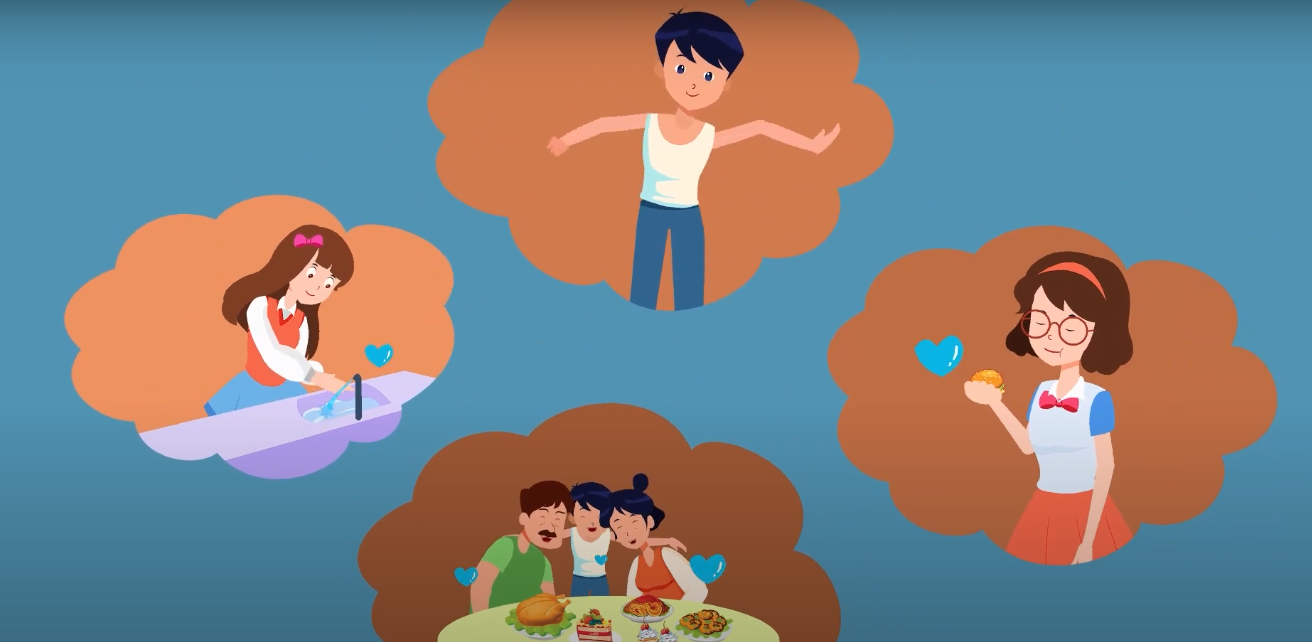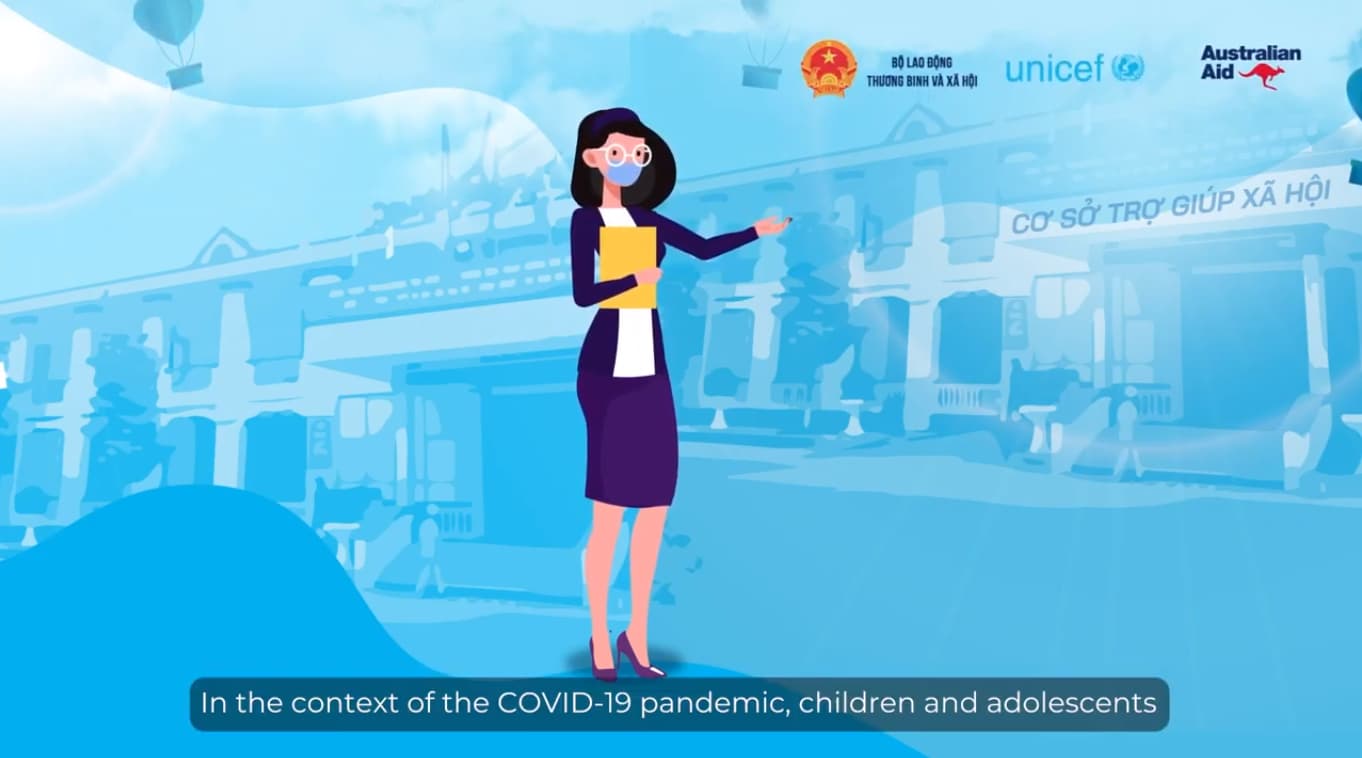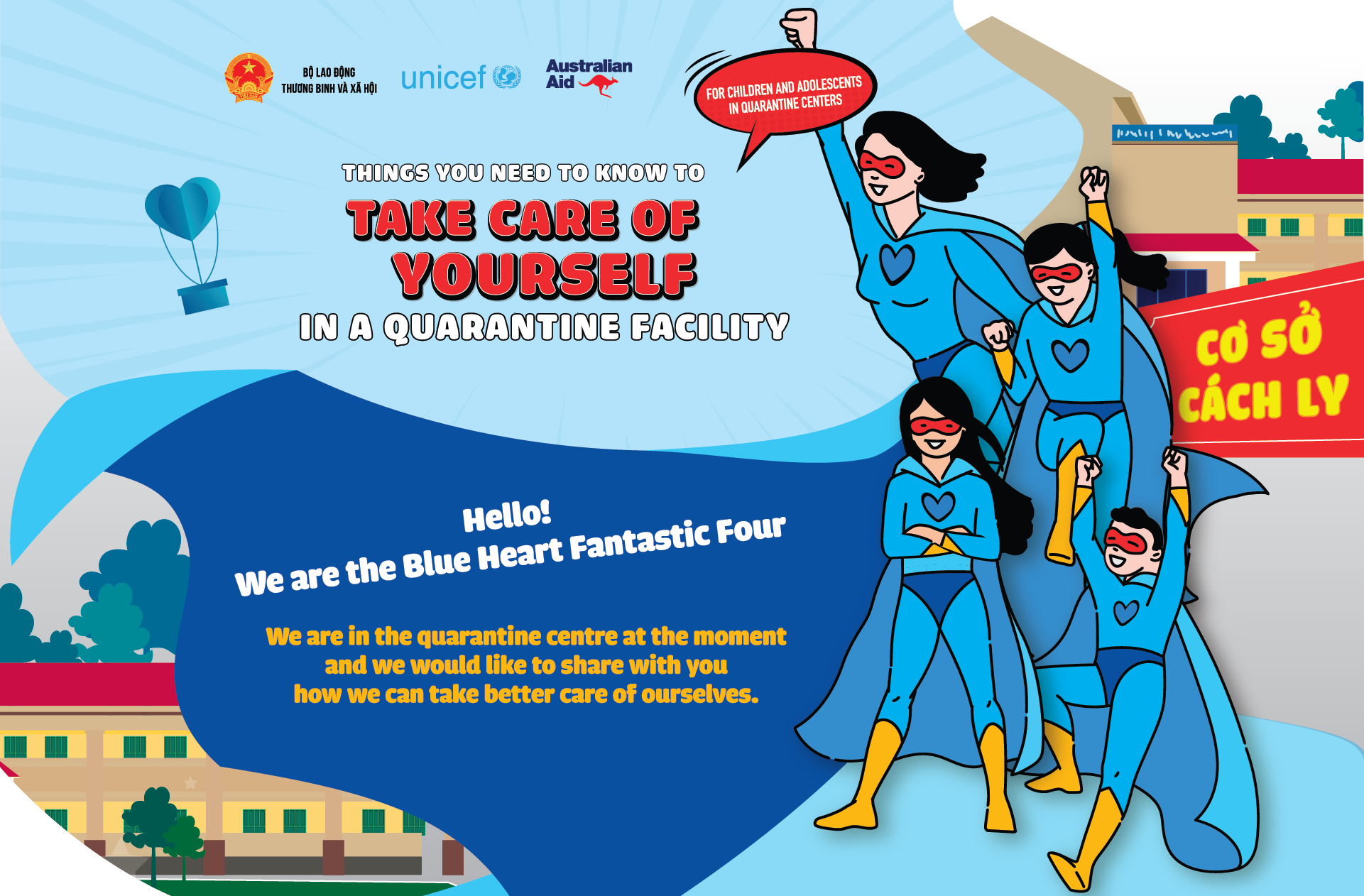 |
Outbreaks of COVID-19 can present a challenge for children, especially adolescents living in social assistance facilities. They may feel anxious about the effects a pandemic can have on their own lives, and the disruption of daily routine can negatively impact their psychological health. children.
|
TEENAGERS MAY HAVE FEELINGS AND RESPONSE::
 |
- Difficulty sleeping, loss of appetite or overeating.
- Difficult to concentrate, reduce interest in daily activities.
- Less talkative and less sharing.
- Closed, want to be alone.
- Feeling irritable, irritable, and changing moods easily.
- Lack of discipline and aggressive behavior.
- Feeling pessimistic, negative thoughts.
- Feelings of being treated unfairly and wanting to blame someone.
The above reactions in the child during this period are normal. A toddler may not feel like and ready to talk about his or her feelings or thoughts. Adults, especially caregivers, must respect this, and need to let children know and feel that there is always a trusted adult available to listen and help.
|
THINGS TO DO:
- Give your child positive information to help them feel safe.
- Explain to children how to avoid infection in the facility.
- Remind children that facility staff are taking all steps necessary to keep them healthy, safe, and ready to help whenever they need it.
- Promotes healthy habits in children.
- Maintain the child’s regular activities at the facility.
- Assess special needs and identify instances of children experiencing severe stress due to trauma or loss.
|
 |
CAREERS NEED:
- Patient and understanding. Show them that you are ready to listen when they need to share.
- Encourage your child to participate in group discussions.
- Encourage children to express and communicate their feelings, especially anger, disappointment, sadness, and anxiety. However, do not force children to share when they are not ready.
- Help children find positive ways to express and resolve uncomfortable feelings through talking, exercising, creative art activities, and exchanging with friends.
- Encourage and praise children when they exhibit positive behaviors such as caring for and taking care of younger children in the facility. This helps them feel they are doing something useful and important.
|
 |
Help your child maintain a daily routine or help them create new activity schedules suitable for circumstances including study, play and relaxation.
Create conditions for children to stay connected with family or relatives (if any)
Take measures to meet the needs of special groups of children, such as children with disabilities.
Identify the child shows signs of stress or has recently experienced psychological loss or trauma. If you feel your child can engage in any dangerous behavior, talk to your child about seeking professional help.


IF A CHILD IS A SERIOUS PROBLEM OF FEELING AND STAFF, FIND HELP BY:
* Call the National Child Protection Call Center 111 (available 24/7) or
* Call the Center for Women and Development Hotline
0946.833.380/ 0946.833.382/ 0946.833.384







